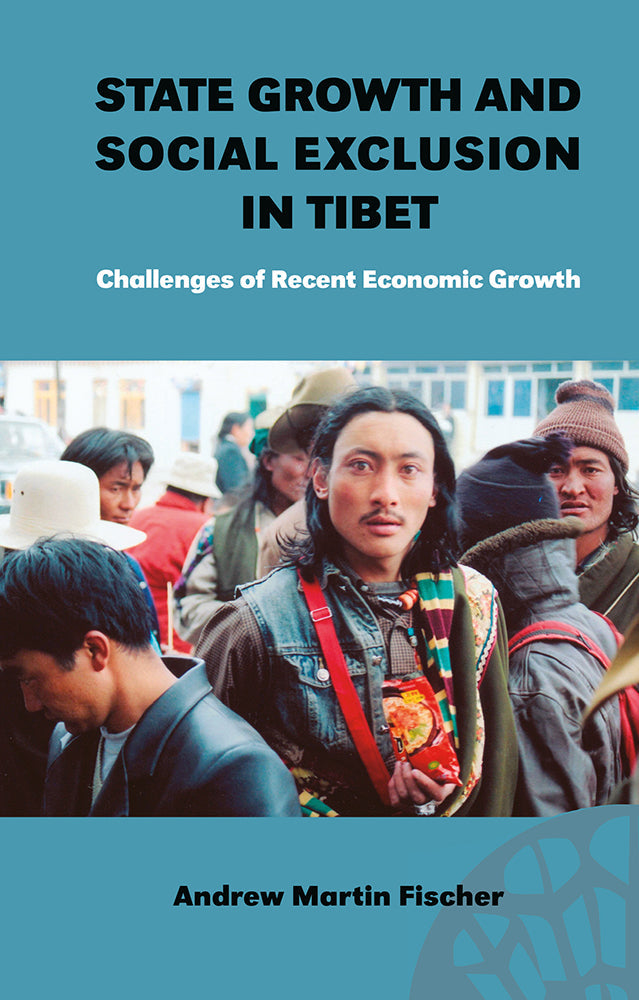State Growth and Social Exclusion in Tibet: Challenges of Recent Economic Growth
$42.00 SGD
by Andrew Martin Fischer
The most pressing economic challenges facing the Tibetan areas of western China relate to the marginalization of the majority of Tibetans from rapid state-led growth. The urban-rural divide plays an impor-tant role in this polarized dynamic but alone only partially explains differences with other Chinese regions, all of which generally exhibit strong spatial inequalities.
This book therefore focuses on several further factors that determine the ethnically exclusionary character of current peripheral growth in the Tibetan areas. These include processes of urbanization, immigration, employment and education as key factors underlying structural economic change. The study draws generally from the analytical framework of social exclusion and is based on extensive use of official Chinese statistics, focusing on the Tibet Autonomous Region and Qinghai but with numerous comparisons to the other provinces of western China. A variety of qualitative insights are also taken from recent fieldwork and secondary sources. The macro focus of this investigation aims to complement the growing wealth of micro-level studies on Tibet produced from a variety of disciplines.
"International discussions of Tibet have tended to focus on questions of culture and human rights, but the factors most affecting Tibetans’ lives today are those caused by changes in their economic and social conditions. Until now, there has been almost nothing written in this field accessible to a general audience. Andrew Fischer’s concise, focused and scholarly assessment of current social conditions in the Tibetan areas of China is essential reading for those studying development and nationality issues in China, and it will also be valuable to much wider discussions of development." – Dr Robert Barnett, Director, Modern Tibetan Studies Program, Columbia University
"Andrew Fischer has written a wonderful book on development and macroeconomics in Tibet. It is a must read for all interested in contemporary Tibetan society and Chinese policy in Tibet." – Professor Melvyn C. Goldstein, Co-Director, Center for Research on Tibet, Case Western Reserve University
"Development economist Andrew Fischer has done a great service to the field of contemporary Tibetan studies by systematically synthesizing and interpreting official data, particularly from Statistical Yearbooks, on the current economic situation of Tibetans living in China.… Perhaps the most refreshing aspect of the book is Fischer’s simultaneous, if mostly implicit, critique of China’s economic policy in Tibet and the tenets of neoliberalism.… In the end, the book has more than fulfilled its aim of showing the flaws of China’s development model in Tibet using official Chinese statistics." – Dr Emily T. Yeh, University of Colorado, Boulder, Journal of Asian Studies
Andrew Martin Fischer is Professor of Inequality, Social Protection and Development at the Institute of Social Studies in The Hague, part of Erasmus University Rotterdam.
Publication year: 2005
214 pp / 221mm x 142mm
26 tables, 19 figures, 12 b/w photos
ISBN: 978-87-91114-63-2, Paperback
ISBN: 978-87-91114-75-5, Hardback
NIAS Press

